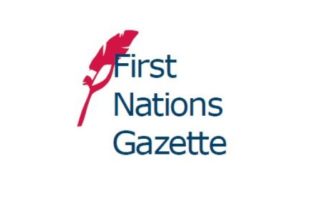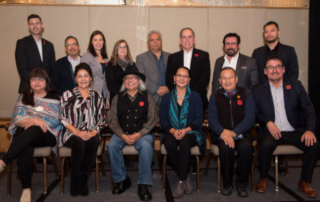-
FNTC: NEWS STORIES
Podcast: Indigenous Experience & Pandemics (Pt 1)
This first podcast episode introduces the history of pandemics and their impact on First Nation lives, communities, jurisdictions, and trajectories. First Nations Tax Commission (FNTC) Chief Commissioner C.T. Manny Jules discusses this history and his vision for change. Chief Commissioner Jules has dedicated over 40 years of his life to public service in support of First Nations. He is a member of Tkemlups te Secwepemc and served as Chief for over 16 years. He was the driving force behind the COMPLETE STORY
First Nations Gazette Launches Redesigned Website
The First Nations Gazette is pleased to announce the launch of its redesigned website. Today marks the twenty-third anniversary of the First Nations Gazette (FNG). First Nation governments have been pushing forward and gaining access to more jurisdictions and powers. As their jurisdictions and powers grow, so do their responsibilities, including transparency for their members and providing taxpayers with access to the laws and by-laws that affect them. The FNG has firmly established itself as the leading source for First COMPLETE STORY
Summary of FNTC COVID-19 Related Measures
In response to the needs of First Nations and taxpayers alike during the COVID-19 Pandemic, the FNTC has been working hard to ensure all First Nations have the flexibility needed to administer their tax systems while rapidly responding to the ongoing pandemic. Effective May 21, 2020, the Commission approved the COVID-19 Pandemic Emergency Response Standards, 2020. These Standards amend several Commission Standards in response to the pandemic. FMA First Nations Facilitating Council Meetings Held by Videoconference or Teleconference The Commission COMPLETE STORY
10 First Nation Organizations & Institutions Sign Protocol
November 7, 2019 (Coast Salish Territory, Vancouver, British Columbia) Today, ten First Nation organizations and institutions gathered in Vancouver to sign a Protocol on Cooperation and Communication. The signatories commit to coordinating their efforts to support capacity development in governance and governance administration in First Nation communities in British Columbia. The protocol voices the pressing need to assist all First Nations in BC in moving beyond the existing fiscal relationship with the Crown and the delivery of delegated programs services. COMPLETE STORY
Certificate in First Nation Tax Administration
The Certificate in First Nation Tax Administration provides the knowledge and skills needed to design and operate a taxation system using the powers outlined in the First Nation Fiscal Management Act. It examines how First Nation government tax policies can be used to promote economic development and finance and build infrastructure. The program pays particular attention to communicating tax policies and laws to Chief and Council and taxpayers. Other skills developed in the program are establishing legal framework, managing the COMPLETE STORY
An Introduction to FMA Service Tax Laws
Watch as FNTC Legal Counsel Marie Potvin introduces the FMA service tax law. This brief but informative webinar outlines: Service Tax Laws & the FMA The FMA includes a specific First Nation law-making power for the “taxation for the provision of services in respect of reserve lands.” Using this power, first Nations can levy a service tax to pay the costs of providing service – related infrastructure to reserve lands. The First Nation borrows the funds required to build the COMPLETE STORY






